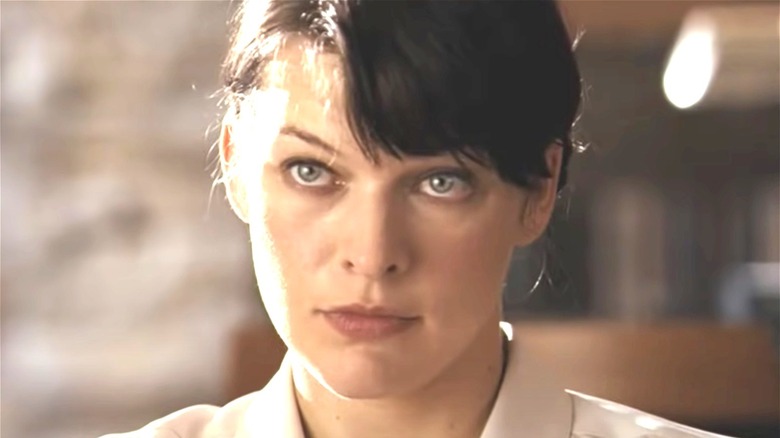Why The Fourth Kind Ended In A Lawsuit
When Universal released "The Fourth Kind" back in 2009, it was marketed as being "based on true events" revolving around a number of missing persons cases in Nome, Alaska. Milla Jovovich plays Dr. Abbey Tyler, a psychologist who hypnotizes a number of people who claim they've been abducted by aliens. Surprise, surprise, the doctor discovers she's also made contact with the terrifying extraterrestrial race. The film supposedly includes the "real" Abbey Tyler, but she's actually played by Charlotte Milchard (via IMDb).
Director Olatunde Osunsanmi uses faked archival footage to back up the most intense moments in the film, like the hypnosis scenes involving Tommy Fisher (Corey Johnson). The film arrived two years after "Paranormal Activity" terrified audiences with its signature found-footage approach. "The Fourth Kind" uses a similar tactic by acting like the events of the film really happened. But this is nothing new for the horror genre; it was done with "The Blair Witch Project" in 1999 and "Cannibal Holocaust" in 1980. While those films became classics in their own right, "The Fourth Kind" failed to whip horror fans into a frenzy, with a 41% audience score on Rotten Tomatoes.
But Universal took the marketing for the sci-fi horror flick a step too far, which resulted in a surprising lawsuit.
Fake News
Universal heavily pushed the "based on true events" approach when it came to the viral marketing campaign for "The Fourth Kind." The studio had fake news articles written up about the events depicted in the film, using them alongside real articles from Alaskan publications about the string of disappearances related to the town. But Universal attributed its fake articles to real publications like the Anchorage Chronicle, the Nome Nugget, and the Fairbanks Daily News-Miner (via IGN).
In 2009, the Anchorage Daily News reported that the Alaskan Press Club hired Anchorage attorney John McKay to sue Universal for the false news reports and for using real missing-persons cases to promote the movie. Nome Nugget publisher Nancy Maguire said, "I really was concerned about it because I didn't write these things,” also adding, "They think they can get away with this because we're Alaska. They don't think of us as having any brains or being upset about what they do.”
The company settled the matter and issued a statement at the time saying, "Universal agrees to the permanent disabling and removal of, and represents and warrants that it has already permanently disabled access to and removed from the Internet, all news articles." The Alaskan Press Club received $20,000 alongside a $2,500 donation to its Calista Scholarship fund.
The fourth kind of contact isn't abduction — it's fake news.

